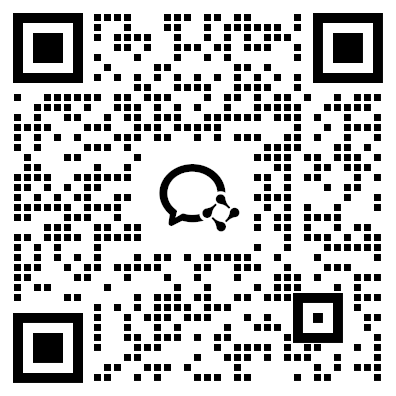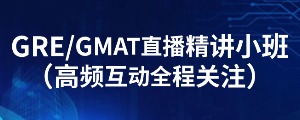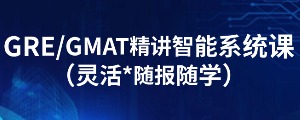选课中心
7099人选课
GRE公开讲座
0元
GMAT公开讲座
0元
一对一体验课
99元
GRE模考网站
10000人
托福备考练习HOT
39209人预约
GRE辅导课程
17537 人
GMAT辅导课程
17537 人
托福辅导课程
17537 人
【定制】1v1
私人订制
资料下载
考前冲刺

扫码关注掌握一手留学资讯
回复XDF免费领
水平测试和备考资料

扫码关注公众号
P4
1
The age at which young children begin to make moral discriminations about harmful actions committed against themselves or others has been the focus of recent research into the moral development of children.
儿童从什么时候开始对施加于自身或他人的有害行为做出道德判断,一直是近年来儿童道德发展研究关注的焦点。
2
Until recently, child psychologists supported pioneer developmentalist Jean Piaget in his hypothesis that because of their immaturity, children under age seven do not take into account the intentions of a person committing accidental or deliberate harm, but rather simply assign punishment for transgressions on the basis of the magnitude of the negative consequences caused.
直到不久前,儿童心理学家一直支持发展心理学先锋人物 JP 的假设,后者认为因尚未成熟,七岁以下的儿童不考虑伤害行为是意外还是刻意为之,而是单纯地基于所造成负面结果的严重程度,把伤害归结为违规后遭到的处罚。
(我认为 supported 应为 had supported,从文意来看,儿童心理学家后来很可能不再认同 PJ 的假设了,但网上流传的版本都没有加 had,在此作个少数派报告。)
3
However, in recent research, Keasey found that six-year-old children not only distinguish between accidental and intentional harm, but also judge intentional harm as naughtier, regardless of the amount of damage produced.
然而,K 在近期的研究中发现,六岁的儿童不仅区分意外和故意伤害,而且判断故意伤害更淘气(也许可以替换为 “ 故意伤害更坏 ”),无论造成的伤害大小。
4
Both of these findings seem to indicate that children, at an earlier age than Piaget claimed, advance into the second stage of moral development, moral autonomy, in which they accept social rules but view them as more arbitrary than do children in the first stage. (163 words)
上述两个发现似乎表明,孩子在 P 所称的年纪(七岁)以前,就进入了道德发展的第二阶段,道德自治,他们在这个阶段接受社交规则,但相较于第一阶段的儿童,他们把规则看得更加 arbitrary 。
(这里的 arbitrary 不好直译,算是汉语和英语的一个不能无缝对接的角落吧。
一般在成人语境中,我们说一个人 arbitrary 意思是这个人做事完全凭自己的好恶,任性,专断,专制,比如一个暴君,可以说他 / 她 arbitrary,是个明显带有负面判断的说法。
但本句中是 children view rules as more arbitrary,如果翻译成孩子认为规则是专断的,但规则是死的不能独立做出基于好恶的判断,不通顺,该怎么理解,先看一段豆瓣读书笔记:
(https://www.douban.com/note/83087156/)(作者:如风)
《皮亚杰儿童道德认知发展阶段》
……
第二阶段:他律道德阶段或道德实在论阶段(3~7岁)。
……单方面地尊重权威,有一种遵守成人标准和服从成人规则的义务感。也就是说,他律的道德感在一些情感反应和作为道德判断所特有的某些显著的结构中表现出来。其基本特征是:一是绝对遵从父母、权威者或年龄较大的人。儿童认为服从权威就是“好”,不听话就是“坏”。二是对规则本身的尊重和顺从,即把人们规定的规则,看作是固定的,不可变更的。皮亚杰将这一结构称为道德的实在论。
……
可见,皮亚杰认为这阶段的儿童,认同这种专制,认同服从权威。
鉴于两种语境下的 arbitrary 有明显不同,特别把它摆出来供你觉得我事儿逼。)
8.According to the passage, Piaget and Keasey would not have agreed on which of the following points?
(A) The kinds of excuses children give for harmful acts they commit
(B) The age at which children begin to discriminate between intentional and unintentional harm
(C) The intentions children have in perpetrating harm
(D) The circumstances under which children punish harmful acts
(E) The justifications children recognize for mitigating punishment for harmful acts
选 B
A 无法判断。
较强的干扰项。不要忽略文章讨论的前提(句 1),孩子是伤害的承受者,或旁观者(孩子目击别人受伤害),而 A 项讨论的是孩子主动施加的伤害,那么我们没有足够的信息判断。
B 正确。七岁和六岁,无争议。
C 无法判断。根据同 A 。perpetrate = commit 。
D 错。children 不 punish,只可能认为自己受惩罚。
E 越跑越远了。
9.According to the passage, Keasey's findings support which of the following conclusions about six-year-old children?
(A)They have the ability to make autonomous moral judgments.
(B)They regard moral absolutism as a threat to their moral autonomy.
(C)They do not understand the concept of public duty.
(D)They accept moral judgment made by their peers more easily than do older children.
(E)They make arbitrary moral judgments.
选 A
A 正确。句 4:
Both of these findings seem to indicate that children, at an earlier age than Piaget claimed, advance into the second stage of moral development, moral autonomy, in which they accept social rules but view them as more arbitrary than do children in the first stage.
B 他们认为道德绝对主义是对他们道德自治的一种威胁。一看到文中没出现过的 -ism,你的第一感觉应该是 —— 丫开始不说人话了,这种通常都不可能是正确项,因为几乎所有的 -ism 都是某种领域的专业知识才能解释的,文中没提,根据 GRE 不要求考生运用背景知识的原则,划掉没问题。
C 他们不理解公共责任的概念。注意,事实上,孩子可能确实不理解公共责任的概念,这句话是对的,但不符合题设,题目让我们根据 K 的研究结果找一种合理结论,而公共责任的概念跟 K 的研究毫无关系。
D 相较于大孩子,他们更容易接受同伴做出的道德判断。未知信息。
E 干扰项。关于 arbitrary,文中的说法是 children view them(social rules) as more arbitrary,不是说孩子自己 arbitrary。具体参考前面的翻译备忘。
以上就是新东方在线GER频道为你带来的GRE阅读题目解析,更多精彩敬请关注新东方在线GRE频道。

 资料下载
资料下载
2024中国学生留学备考白皮书下载
发布时间:2024-05-20添加新东方在线美研助教号
回复【资料】获取
GRE高频真词表资料下载
发布时间:2024-05-20添加新东方在线美研助教号
回复【资料】获取
GRE数学-OG官方150题资料下载
发布时间:2024-05-20添加新东方在线美研助教号
回复【资料】获取
GRE数学常用词汇资料下载
发布时间:2024-05-20添加新东方在线美研助教号
回复【资料】获取
2024GRE数学重点突破资料下载
发布时间:2024-05-20添加新东方在线美研助教号
回复【资料】获取
2024GMAT模考题&答案资料下载
发布时间:2024-05-20添加新东方在线美研助教号
回复【资料】获取
GRE&GMAT阅读难句教程资料下载
发布时间:2024-05-20添加新东方在线美研助教号
回复【资料】获取
2024年托福考试重点题目资料下载
发布时间:2024-05-20添加新东方在线美研助教号
回复【资料】获取
托福独立口语必练70题资料下载
发布时间:2024-05-20关注新东方在线美研订阅号
回复【GRE】获取
托福口语综合口语精听50题节选资料下载
发布时间:2024-05-20添加新东方在线美研助教号
回复【资料】获取
托福听力1200词资料下载
发布时间:2024-05-20添加新东方在线美研助教号
回复【资料】获取
托福写作综合写作练习册-听力精听25篇资...
发布时间:2024-05-20添加新东方在线美研助教号
回复【资料】获取
托福写作综合写作练习册-阅读改写50篇资...
发布时间:2024-05-20添加新东方在线美研助教号
回复【资料】获取
托福阅读核心词表1500词(前30天优先必学...
发布时间:2024-05-20添加新东方在线美研助教号
回复【资料】获取

添加美研助教号,
回复【GRE】获取备考必看资料包

 推荐阅读
推荐阅读
备考GRE,对大部分同学来说也是一个新挑战,尤其是阅读部分,如何在有限的时间内大幅提高阅读速度呢? 快来本文看看吧。
本文今天为大家带来的是gre考试中easy等级难度的阅读片段,一起来看看吧!
2022年3月13-19日GRE阅读题回忆及答案(六)来啦,来本文和新东方在线GRE一起来看看详细信息吧。
2022年3月13-19日GRE阅读题回忆及答案(五)来啦,来本文和新东方在线GRE一起来看看详细信息吧。
2022年3月13-19日GRE阅读题回忆及答案(四)来啦,来本文和新东方在线GRE一起来看看详细信息吧。
2022年3月13-19日GRE阅读题回忆及答案(三)来啦,来本文和新东方在线GRE一起来看看详细信息吧。
2022年3月13-19日GRE阅读题回忆及答案(二)来啦,来本文和新东方在线GRE一起来看看详细信息吧。
2022年3月13-19日GRE阅读题回忆及答案(一)来啦,来本文和新东方在线GRE一起来看看详细信息吧。
2022年2月13日GRE阅读题回忆及答案来啦,来本文和新东方在线GRE一起来看看详细信息吧。
2022年2月13日GRE阅读题回忆及答案来啦,来本文和新东方在线GRE一起来看看详细信息吧。


 GRE/GMAT直播精讲小班
GRE/GMAT直播精讲小班
 GRE/GMAT精讲智能系统课
GRE/GMAT精讲智能系统课
 托福直播/精讲课(30天/60天)
托福直播/精讲课(30天/60天)
添加美研助教号,
回复【GRE】获取备考必看资料包

 资料下载
资料下载
添加新东方在线美研助教号
回复【资料】获取
添加新东方在线美研助教号
回复【资料】获取
添加新东方在线美研助教号
回复【资料】获取
添加新东方在线美研助教号
回复【资料】获取
添加新东方在线美研助教号
回复【资料】获取
添加新东方在线美研助教号
回复【资料】获取
添加新东方在线美研助教号
回复【资料】获取
添加新东方在线美研助教号
回复【资料】获取
关注新东方在线美研订阅号
回复【GRE】获取
添加新东方在线美研助教号
回复【资料】获取
添加新东方在线美研助教号
回复【资料】获取
添加新东方在线美研助教号
回复【资料】获取
添加新东方在线美研助教号
回复【资料】获取

 阅读排行榜
阅读排行榜
 相关内容
相关内容